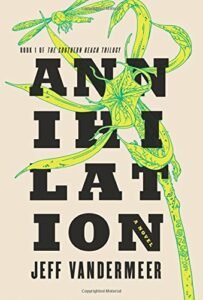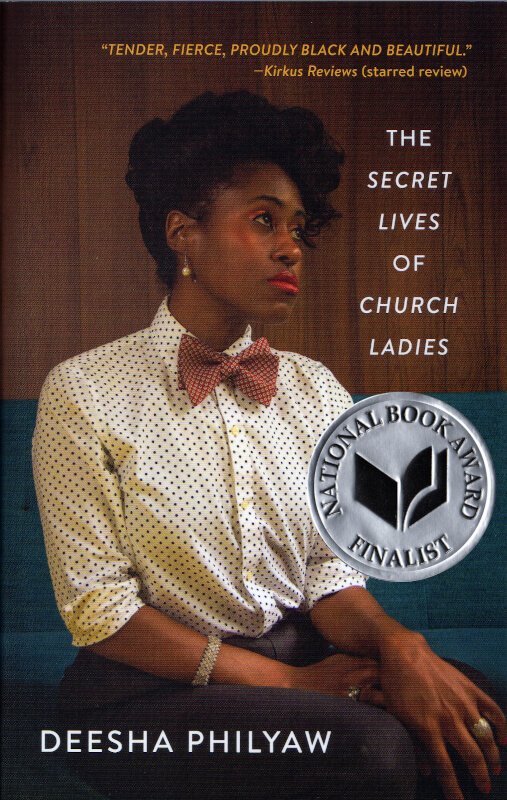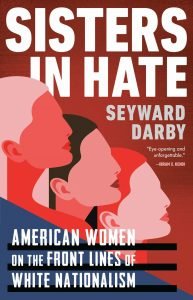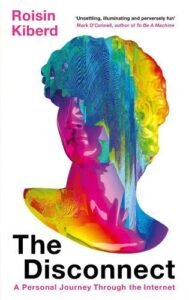If you’re a fan of Pipe Wrench, chances are pretty good that you’re that person who always gives books as gifts. And with good reason: reading is the best. Books transport, they teach, they inspire, they move. And you can never have too many, because you can always use them to construct end tables or fill non-working fireplaces.
For ease of gift-selecting, collected here are all the books recommended in Pipe Wrench this year along with books written by Pipe Wrench contributors, organized by gift-ee appropriateness. Is there something for everyone on this list? Probably not; we can’t keep track of everyone’s kooky interests. But for the right person, there’s something perfect.
For the person who’s already watched all the nature documentaries on Netflix twice
Sparrow Envy: Field Guide to Birds and Lesser Beasts, by renowned naturalist and writer J. Drew Lanham. All things bird, in poetry and prose, plus the question: can birding be an escape if the birder isn’t safe? (Recommended by Soraya Roberts.)
Songbird Journeys: Four Seasons In the Lives of Migratory Birds, by Miyoko Chu, which “pays homage to the wonder and beauty of songbirds while revealing the remarkable lives of migratory birds and the scientific quest to answer age-old questions about where songbirds go, how they get there, and what they do in the far-flung places they inhabit throughout the year.” (Indiebound) (Recommended by Soraya Roberts.)
A Pocket Guide to Pigeon Watching: Getting to Know the World’s Most Misunderstood Bird, by Issue Two contributor Rosemary Mosco. If you think pigeons are just one particular kind of bird that serves no purpose other than pooping on park benches, Rosemary and her wonderful illustrations would like you to think again.

Silent Spring, by Rachel Carson, was a landmark book in the environmental movement. The outcry that followed its publication forced the banning of DDT and led to a slew of critical environmental regulations. (Recommended by Soraya Roberts.)
The Thirty Names of Night, by Zeyn Joukhadar, won the Lambda Literary Award for Transgender Fiction and the ALA Stonewall Book Award. It follows three generations of Syrian Americans linked by a mysterious species of bird. (Recommended by Soraya Roberts.)
For the person who’s somehow already able to read stories about pandemics
Ravensong is by Canadian Indigenous literature pioneer Lee Maracle, who the world lost in November 2021. This 2017 novel centers, presciently, on an Indigenous community decimated by a flu epidemic. (Recommended by Soraya Roberts.)
Severance by Ling Ma, another society-destroyed by-pandemic novel that should make you think “maybe we should pay more attention to the writers,” was on every best-of list in 2018. (Recommended by Katie Goh.)
For the person who loves a good dystopia but is still staying away from plague stories
Annihilation, by Jeff VanderMeer: Area X has been cut off from the rest of the continent for years. Expeditions one through eleven ended in euphoria, or suicide, or murder, or hope, or disease, or strife. Annihilation is the story of the 12th expedition. (Recommended by Katie Goh.)
Parable of the Sower by Octavia Butler. Environmental crisis? Check. Economic catastrophe? Check. A young woman of color building a radical new way of relating? Check. (Recommended by Katie Goh.)
Stories of Your Life and Others, by Ted Chiang. One of the short stories from this critically-acclaimed collection exploring fate, determinism, and uncertainty became the movie “Arrival.” (Recommended by Katie Goh.)
For a child, and/or for the person who rereads “The Phantom Tollbooth” once a year
The Happy Prince and Other Stories by Oscar Wilde, is a collection of fairy tales fusing the magical and the modern (or, the modern as of 1888). (Recommended by Soraya Roberts.)
For the person who spent many childhood Sundays being fidgety in church
The Secret Lives of Church Ladies, by Issue Two contributor Deesha Philyaw, is a National Book Award and PEN/Faulkner finalist. Nine beautifully written stories center black woman, all of whom are working to reconcile their needs with the strictures of the churches at the center of the lives and communities.
Empty the Pews: Stories of Leaving the Church, edited by Lauren O’Neal and Issue Four contributor Chrissy Stroop, features writers digging into the “intersections of queerness, spiritual abuse, loss of faith, and the courage needed to leave one’s religious community… to boldly address the individual experiences and systemic dysfunction so common in conservative churches.” (Bookshop)
An Introduction to Womanist Biblical Interpretation by Nyasha Junior, who was part of our inaugural issue, argues that womanist biblical interpretation is more than a subset of feminist biblical scholarship — it comes from a unique and longstanding tradition of African American women grappling with the Bible.
For the person who voted for Joe Biden begrudgingly
Sexual Revolution: Modern Fascism and the Feminist Fightback, by Issue Three contributor Laurie Penny, looks at how sea changes in how we understand sex, gender, and consent can topple political and economic structures that serve only a tiny fraction of us. Preorder now and try to stay calm until April. If you need more Laurie Penny ASAP, try Bitch Doctrine or Everything Belongs to the Future.
Sisters in Hate: American Women on the Front Lines of White Nationalism, Seyward Darby. Seyward, who chose an excerpt of her book to feature in Issue One, spent years talking to and working to understand current and former white nationalists Corinna Olsen, Ayla Stewart, and Lana Lokteff. This in-depth look at how white women sustain the alt-right remains a painfully important read.
Acquired Tastes: Stories about the Origins of Modern Food, is an anthology edited by Benjamin R. Cohen, Michael S. Kideckel, and Anna Zeide. Issue Three’s feature story, “Ghost Acres,” was excerpted and adapted from this new collection from MIT Press. We are what we eat, and what we eat has racist, colonialist roots — this book helps us pick them apart so we can see the work that needs to be done to create just food systems.
Men of Capital: Scarcity and Economy in Mandate Palestine, by Issue Three’s Sherene Seikaly “reveals how Palestinian businessmen and British colonial officials used economy to shape territory, the nation, the home, and the body.” (Bookshop)
For the person who first accessed the internet with a dial-up modem and 100 free AOL minutes
In My Humble Opinion: My So-Called Life, by Soraya Roberts, Pipe Wrench editor at large, is a deep dive into a ground breaking television series. Was it really only 19 episodes? Angela Chase walked so Rory Gilmore could run.
For roughly 55% of us, given the past couple of years
The Disconnect: A Personal Journey Through the Internet, by Roisin Kiberd, explores three inescapable questions: What has the internet given us? What has it taken? And what has it asked us to willingly relinquish? (Recommended by Katie Goh.)
The Best Shots You’ve Never Tried is by Issue Two contributor and bartender extraordinaire Andrew Bohrer, who would like you to know that he did not have a say in the title of this book.
Happy year-end nonspecific festive period! May you have access to extremely comfortable chairs and ample downtime for reading.

All links to bookshop.org are affiliate links, meaning we’ll earn a
small commission from thtem. The price of your books doesn’t change!





